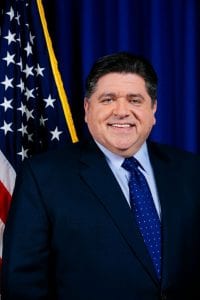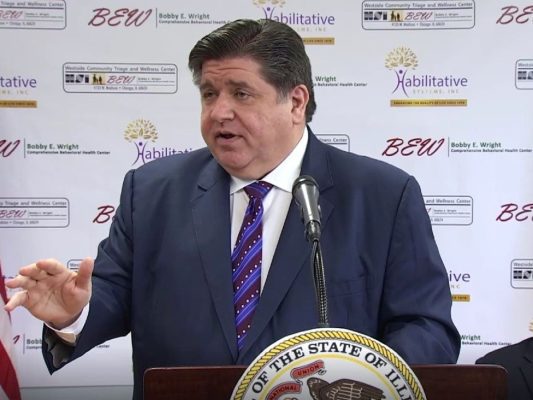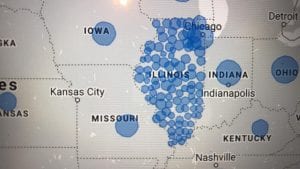Illinois Covid State Of Emergency Coming To An End?
At long last, the state of emergency due to covid-19 is coming to an end in Illinois.
Gov. J.B. Pritzker announced in a statement Tuesday that the statewide public health emergency declaration will end on May 11, in line with Joe Biden’s announcement that the federal government state of emergency will end that same day.
This isn’t to say that covid numbers have hit zero or that the virus is a thing of the past. Despite all its mitigations, Illinois remains a hotbed for covid spread in some spots, according to the National Academy for State Health Policy, which has been tracking each state’s emergency orders. As a result, Illinois is one of eight states that still had a declared disaster or state of emergency as of the start of February.
Gov. J.B. Pritzker first declared a public health emergency on March 9, 2020, joining a dozen other states. Linking the state and federal emergencies allowed more federal money to the state and provided more access to health care for Illinois residents, Pritzker said in a statement.

Illinois Gov. JB Pritzker
“Since COVID-19 first emerged nearly three years ago, my administration has worked diligently alongside the federal government to battle this once-in-a-generation pandemic by following scientific and medical guidance to support frontline workers and save lives,” Pritzker said in a statement.
“Our state’s disaster proclamation and executive orders enabled us to use every resource at our disposal from building up testing capacity and expanding our healthcare workforce to supporting our vaccine rollout and mutual aid efforts,” Pritzker said.
According to the governor’s office, the disaster proclamation allowed for federal reimbursement of state spending on the coronavirus response, the use of the State Disaster Relief Fund, and provided the governor with broad powers of executive action.

Illinois Gov. JB Pritzker had previously yet to announce any changes in the Illinois covid policies from their current status.
Illinois residents were able to receive additional food stamps, with more than 1.5 million children getting pandemic nutrition support, while Medicaid expansion allowed for additional access to telehealth options, according to the governor’s office.
Pritzker, who was elected to a second term in November, has had emergency powers for more than 70 percent of his time in office.
“Let me be clear: COVID-19 has not disappeared,” Pritzker said. “It is still a real and present danger to people with compromised immune systems—and I urge all Illinoisans to get vaccinated or get their booster shots if they have not done so already.”
The end of the federal emergency will mean that people without health insurance will have to pay out-of-pocket for COVID-19 tests, treatment and vaccines. It will also mean a rapid rise in prices for the vaccines, as, according to reports, Pfizer plans to start charging up to $130 a dose.

Illinois covid cases exploded over the pandemic, causing governor JB Pritzker to enact mitigations.









